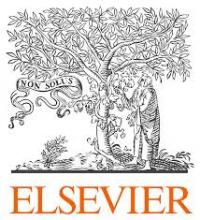Resource information
The paper presents the development and implementation of a decision support system (DSS) for wetland management in a river basin context under data scarce conditions. It is shown that by combining hydrological, socioeconomic, institutional and biological indicators in a participative approach, a better understanding of the interactions between the different factors affecting the “wetland socio-ecological system conditions” can be created. For this purpose, mathematical models, expert judgment and stakeholder preferences were combined into an integrated DSS framework. The DSS for the Abras de Mantequilla-Guayas Basin environment was derived from a generic, conceptual Decision Support Framework developed and proposed within the WETWin project, taking into consideration the specific conditions at the case study site. Standard methodologies for the characterization of wetland ecosystem services were applied and used to evaluate the effects of potential management solutions using appropriate criteria to assess the trade-offs. In order to account for the interactions between the river catchment and the wetland system, an embedded modeling framework was adopted in which coupled models for rainfall-runoff and hydrodynamics including the wetland and its adjacent rivers provided the inputs to a water allocation model. Using these tools, several management solutions were evaluated, including a baseline scenario where climate changes were combined with the effects of major infrastructure works that are presently envisaged by the local water authority. As a complementary tool for indicators based on poor quantitative data, expert elicitation was incorporated in the decision making process to capture the potential socioeconomic, institutional and ecological impacts of the various management alternatives. Simultaneously, stakeholder consultation (both users and decision markers) was carried out to derive current and future sets of preferences thus determining the criteria weight sets for different user groups. All these elements served as inputs to the DSS choice phase in order to provide a ranking of the proposed management solutions under each management criterion. At present, the option dealing with a moderate landuse substitution and reforestation was the preferred one by local stakeholders. In the future, there could well be an agreement between local actors and governmental agencies when their interests move closer toward more environmentally sustainable landuse. This decision support methodology may facilitate further negotiations toward a sustainable wetland system.



